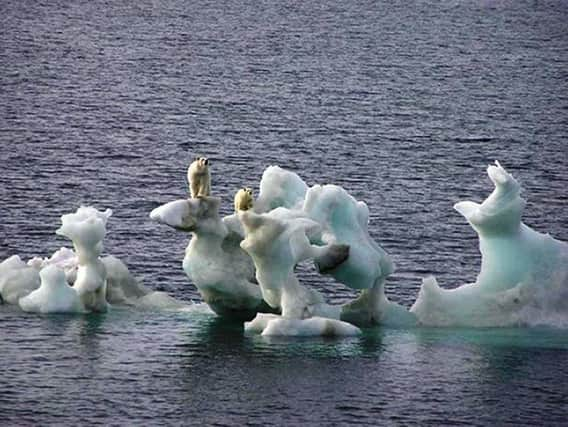Pointless emails do not just waste our time, they are killing the planet - Mark Casci


It is the name I have assigned to the deluge of emails that begin to fill my inbox around this time.
I will be the first to admit that it is a hyperbolic and somewhat crass term but nonetheless I am sticking with it.
Advertisement
Hide AdAdvertisement
Hide AdThe Monday avalanche is usually the most severe but the remainder of the working week is not much behind it.


It is a situation that I know virtually all of those of you reading this column will be familiar with.
Genuine communiqués and inquiries are swept away amid a morass of messages along the lines of “just checking you have seen this” or “I am not sure if this one is for you but I am sending it anyway”.
The ease of which one can compose and send an email has led to a plethora of utterly pointless communication. No one would ever send a letter or make a phone call along these lines as they would consider it a waste of both their’s and the recipient’s time, and rightly so.
Advertisement
Hide AdAdvertisement
Hide AdHowever, such standards do not apply it would seem to the world of electronic email.


This is not some embittered rant from an overly-harassed journalist (well, maybe a little bit). It is a genuine economic and environmental problem.
The loss of productivity alone is eye-watering.
Research from McKinsey showed high-skill knowledge workers spend some 28 per cent of their working week managing their emails.
A separate study from the Social Research Lab at the University of Northern Colorado showed that 42 per cent of workers spend at least three hours per day reading and writing email.


Advertisement
Hide AdAdvertisement
Hide AdAt a time when productivity is a serious issue for the UK economy it seems obvious that a quick contribution to helping rectify this is staring us very much in the face.
But let’s put aside the pounds and pence for a moment and look at the wider damage.
Research released today from OVO Energy shines a spotlight on the environmental impact.
According to its research the UK could reduce its carbon output by over 16,433 tonnes, simply by each adult sending one less unactionable email a day.
Advertisement
Hide AdAdvertisement
Hide AdFor context my friends this adds up to the equivalent of 81,152 flights to Madrid or taking 3,334 diesel cars off the road.
OVO claims more than 64 million unnecessary emails are sent everyday.
And it would seem that many people, myself included, are unaware of the ecological cost of such flippant communication, with almost three quarters of people in the UK completely unaware of the carbon footprint attached to their inbox. While we may be ignorant of the cost to the planet we seem very much aware of the lack of urgency in sending such messages, with 49 per cent of British workers confessing to sending unnecessary emails to a colleague or friend within talking distance every single day.
Top of the list on the unnecessary email lists’ worst offenders are, ironically, common courtesies and pleasantries.
Advertisement
Hide AdAdvertisement
Hide Ad“Thank you”, “Thanks”, and “Have a good weekend” top the podium of shame, with “Did you get/see this?”, “Cheers” and “LOL”.
As someone who places a considerable amount of stock in good manners it pains me to say that this kind of activity must be curtailed.
I am more than happy to forgo the thank you emails in order to help protect the planet and I do not think I will be alone in this view.
Similarly, I am aware that if I do not receive a reply to a message I have sent, then in all likelihood that person is either not interested in or has been too busy to review its content.
Advertisement
Hide AdAdvertisement
Hide AdThis does not concern me one bit, as I have no divine right to be replied to.
Equally, there is no way on earth I can review and reply to all of the 500 plus emails I get each day.
Cutting out pointless emails needs to be viewed in the same area as single use plastic bottles, plastic straws and single use beverage cups in that they all have no place in the modern world.
For the betterment of our economy, productivity and ecology, let us stop this unnecessary damage.